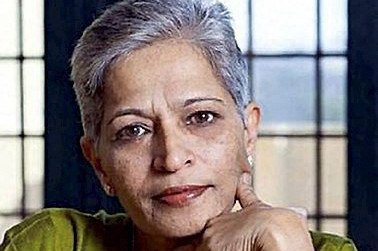
New Delhi: Born on January 29, 1962, Gauri Lankesh was an outspoken Indian journalist-turned-activist from the southern Indian city of Bengaluru.
She worked as an editor in Lankesh Patrike, a Kannada weekly started by her father P Lankesh, and ran her own weekly called Gauri Lankesh Patrika. Known to be a notable social commentator and acclaimed for her lifelong support for free speech and strong journalistic ethics, her works were popular in all quarters. Lankesh started her career as a journalist with the Times of India in Bengaluru. Later, she moved to Delhi with her husband Chidanand Rajghatta. Shortly after, she returned to Bengaluru, where she worked as a correspondent for the Sunday magazine for nine years.
Lankesh was a staunch critic of hardline Hindu politics. In 2003, she opposed Hindu outfit Rashtriya Swayamsewak Sangh’s alleged attempts to Hinduise the Sufi shrine Guru Dattatreya Baba Budan Dargah, located at Baba Budan Giri.
Non-partisan campaigner
In November 2014, the Congress-led Karnataka government appointed Lankesh as a member of a committee aimed at convincing Maoists to give up violence and surrender. A delegation of BJP leaders accused her of being a Maoist sympathiser, and demanded her removal from the committee.
Lankesh was also a vocal campaigner for the rights of Dalits, and made no secrets of her dislike for Prime Minister Narendra Modi. Her Facebook posts often contained unflattering descriptions of Modi. In a recent post she lauded India’s stand-up comics for “successfully doing more than most to destroy the Modi myth”. Lankesh had also written extensively about the wrongdoings of Congress party leaders. She happens to be the first journalist-activist to be murdered in south India.












